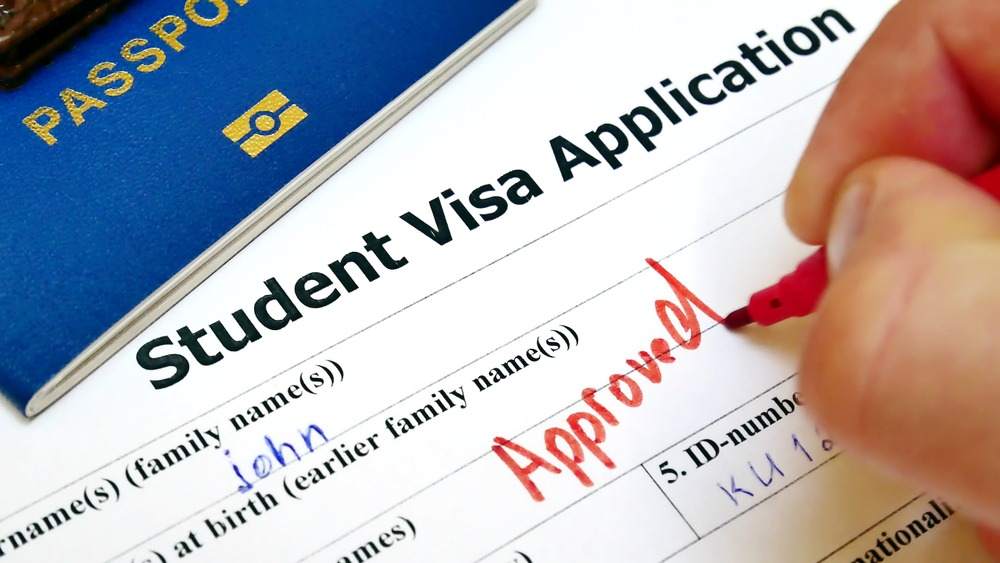For international students in the U.S., graduation is a moment of pride—but it also marks the beginning of uncertainty. As their student visa nears expiration, many face legal challenges in remaining in the country. The process is often complex, emotionally taxing, and legally demanding. Seeking professional guidance from an immigration attorney Fresno California can be a vital step in navigating these challenges and advocating for legal options based not only on professional prospects but also mental and emotional well-being.
The Visa Cliff: What Happens After Graduation?
After completing their studies, most international students on F-1 visas face a ticking clock. Optional Practical Training (OPT) offers temporary work authorization, but it's limited—typically 12 months, with a possible 24-month extension for STEM graduates. Once OPT expires, students must secure another visa, gain sponsorship, or prepare to leave the U.S.
This limited window places tremendous pressure on recent graduates. For many, returning to their home country is not just inconvenient—it may mean economic hardship, political instability, or the severance of strong personal ties built during years in the U.S.
Legal Avenues to Stay—and the Mental Health Burden
There are multiple legal options available for graduates, including H-1B visas, employment-based green cards, asylum applications, and marriage to a U.S. citizen. However, each route comes with its own risks, delays, and uncertainties.
Filing for an H-1B visa is notoriously competitive. Employment-based green cards can take years. And while asylum offers refuge, it must be based on credible fear of persecution—not simply a desire to stay. These long, stressful processes often involve intense scrutiny, legal fees, and long waiting periods that can cause prolonged anxiety and depression.
Mental health is often overlooked in immigration law. Yet the emotional distress of facing deportation or separation from a life built over the years is real and frequently debilitating. A growing number of advocates argue that mental and emotional harm should be more deeply considered in immigration proceedings, particularly in hardship waivers and humanitarian relief applications.
Making a Case for Emotional and Mental Harm
One evolving area of immigration law is the expansion of what constitutes "extreme hardship" in waiver applications. U.S. Citizenship and Immigration Services (USCIS) considers emotional, psychological, and medical impacts when evaluating hardship claims.
For example, if a graduate is the primary caregiver for a family member in the U.S., or if they suffer from diagnosed anxiety or PTSD that would worsen under forced repatriation, these factors may strengthen their legal case. Documentation from therapists, psychologists, and physicians can help substantiate claims that removal would result in severe emotional harm.
An experienced immigration attorney Fresno California can help individuals frame these cases, collect the necessary evidence, and advocate effectively in immigration proceedings.
The Role of Attorneys in Crafting Humanitarian Arguments
Legal professionals are increasingly emphasizing the human side of immigration. By framing mental health as a central part of an immigrant’s legal claim, attorneys can show that deportation would not just disrupt economic or educational progress—but could severely damage a person’s well-being.
Recent legal scholarship supports this approach. A 2023 Harvard Law Review article emphasized the need for reforms that take mental health into account in immigration proceedings, noting the psychological trauma often inflicted by family separation, forced relocation, and systemic limbo. While policies are slow to evolve, arguments centered on humanitarian concerns are gaining traction.
These legal strategies are particularly important for international students from countries facing instability or discrimination. An immigration attorney Fresno California with a strong background in humanitarian claims can use this angle to develop persuasive narratives that resonate with immigration judges and officers.
The Unique Pressure on Students: Identity, Belonging, and Uncertainty
International students often build their adult lives in the U.S.—forming communities, launching careers, and embracing American culture. Being forced to leave means more than starting over. It involves the loss of identity, relationships, and a sense of belonging.
The emotional toll is exacerbated by the sense of powerlessness students feel as they navigate a system designed with rigidity rather than flexibility. The legal process may not always accommodate the nuanced, deeply personal stakes involved. This mismatch between law and lived experience is at the heart of many immigration struggles post-graduation.
Mental health professionals note the rise of immigration-related trauma, which encompasses symptoms of anxiety, insomnia, and depression brought on by immigration stressors. A 2022 report by the American Psychological Association highlighted the mental health impacts of uncertain immigration status, calling for greater support mechanisms and legal recognition of emotional harm.
Toward a More Compassionate Immigration System
While the system is slow to adapt, there's growing acknowledgment of the need for reform. In the meantime, students must be proactive. Consulting with legal professionals early—before their visa expires—can open up more options. Evidence of emotional and mental hardship should be documented in real time, not just during legal emergencies.
Students should also take advantage of resources on campus. University international student offices, counseling centers, and legal clinics often offer support and referrals. These services can help students stay informed and supported throughout their post-graduation transition.
Conclusion
Navigating life after graduation as an international student involves more than visa paperwork—it’s a deeply emotional journey filled with legal and personal complexities. As legal strategies evolve, highlighting mental and emotional harm is becoming an important part of the conversation. By working with a seasoned immigration attorney Fresno California, students can build stronger cases that reflect not only their ambitions but also the very real mental toll of potential removal. A more compassionate and inclusive legal approach may be the key to protecting the futures—and mental health—of America’s international graduates.

.jpg)




